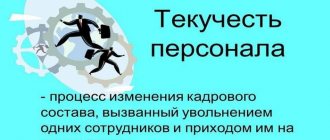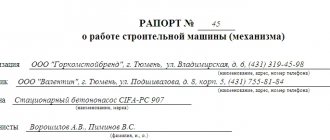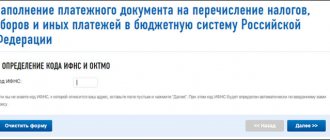Why Plato?
Every day, many trucks pass along Russian federal highways. Naturally, a large mass of trucks has a negative impact on the road surface, which wears out at an increased rate. In order to compensate for this wear and tear, it was decided to charge heavy vehicles for each kilometer they travel on Russian roads. Since the meaning of this payment is to exceed the established weight limit of the vehicle, that is, the payment is made for the additional load on the road surface, the name “ Platon ” (abbreviation “PAY FOR TON”) was chosen.
The funds collected through Plato go to the Road Fund, from where they will be spent on various projects related to the construction and modernization of roads carried out in the regions of the Russian Federation.
FOR YOUR INFORMATION! The system was officially launched on November 15, 2015, and potential payers were informed about the upcoming innovation from the beginning of the year.
Which cars fall under the Plato system?
The Platon system charges a fee for driving on federal highways from vehicles with a permissible weight of at least 12 tons. The tax applies to cars not only of Russian, but also foreign ownership.
There is no toll for road use:
- passenger vehicles;
- military equipment and trucks used for its transportation;
- vehicles operated by emergency services: ambulance, fire service, police, Ministry of Emergency Situations, etc.
What cars is Platon used for?
The maximum weight of cargo vehicles up to which it is permitted not to bear the road pavement fee is 12 tons. Cars that weigh more must use Platon without fail.
REFERENCE! Research has confirmed that heavy vehicles cause 56% of damage to road surfaces, which is comparable to the passage of up to 50 thousand passenger cars. Due to the quantity, the main part of taxes and road fees comes from car drivers, so it is fair that cars, whose owners’ income depends on roads, also take part in compensating for the harm caused.
Documents and regulations
The development of the Platon toll collection system was carried out on the basis of the following regulations and documents:
- Transport strategy of the Russian Federation 2010-2020 and until 2030
- Federal Law No. 257-FZ “On highways and road activities in the Russian Federation.” Establishes the procedure for the movement of vehicles heavier than 12 tons on federal highways.
- Federal Law No. 68-F. On introducing certain changes to the budget code, as well as to legislative acts.
- Decree of the Government of Russia No. 928. On the list of federal roads intended for public use.
- Order of the Government of Russia No. 1662-r. On concluding a mutually beneficial agreement with RT-Invest Transport Systems regarding the implementation of the Platon toll system.
- Government Decree No92/8. On the issues of collecting tolls from vehicles weighing more than 12 tons to compensate for damage caused to federal roads.
- Resolution of the Government of the Russian Federation No. 474. On the suspension of action and amendments to certain acts of the Government of the Russian Federation.
Read on topic: Replacing curbs on roads
Legislative regulation of "Plato"
The need for such a system has been brewing for a long time, and in mid-2014 the Cabinet of Ministers received an order from the President of the Russian Federation to develop appropriate proposals. As a result, Decree of the Government of the Russian Federation No. 474 of May 18, 2020 was adopted, which amended the previous Decree No. 504 of June 14, 2013. The main amendment was a change in the characteristics of the vehicles from which the fee should be charged to a weight exceeding 12 tons. The payment amount established for each kilometer traveled remained unchanged - 3.73 rubles/km.
In Resolution No. 1191 of November 3, 2020, the price per kilometer of road was revised - a coefficient was established that was applied to that adopted in Resolution No. 504. Before 2020, it was 0.41, and from March 1, 2020 until the end of 2020, it is planned to apply a coefficient of 0. 82 (for each kilometer traveled you will have to pay 3.06 rubles)
Platon operator RT-Invest Transport Systems LLC has entered into a 13-year Concession Agreement, under which it provides organization, operation, control and modernization of the system together with Rosavtodor.
BY THE WAY! In the fall of 2020, the Platon toll collection system received the Runet Prize for the best compliance with modern technologies as part of innovation.
What is the Plato system: essence and basis for development
This tax system was put into operation in November 2015.
The main purpose of its creation is to compensate for the costs of road repairs arising from the excess number of heavy vehicles, which at the time of the initial stage of development numbered about 2 million units. The main maintenance of the system is carried out by a private company, which belongs in equal shares to itself and Igor Rotenberg. Her responsibilities include collecting money for the passage of heavy trucks along the highways and redistributing the amount received to various levels. Operator activities are paid from the federal budget (about 10 billion rubles/year). Planned revenues from the operation of the system vary between 20 and 40 billion rubles annually.
This is interesting. “Platon” is a platform for carrying out a large-scale program by 2020, according to which it will be possible to completely replace 90% of the entire road surface (without intermediate restoration) at the expense of the system itself, without the participation of the federal budget.
How to use Plato
To pay a fee for moving and transporting cargo on a vehicle whose weight exceeds 12 tons, the owner needs to complete several steps:
- Registration in the system (in the Platon Register, where all vehicles from which this payment must be collected are recorded). This can be done in several ways:
- through the Personal Account of the official Plato website;
- at the self-service terminal;
- through a mobile application;
- in one of the User Information Support Centers.
- Obtaining a login and password . This data is required to access your Personal Account on the website.
- Depositing money . The responsible person tops up the account with the required amount before the car leaves for the route.
- Registration of a Route map or calculation using on-board device data.
Legal regulation
The Plato system works as an incredibly complex and intricate mechanism. This is a truly complex project that must be legally regulated. There are a number of regulatory documents that provide the legislative basis for the phenomenon under consideration. The first and most important document that is worth mentioning here is Federal Law-68 of 2011. He makes some amendments to the Code of Administrative Offenses of the Russian Federation. Here are the rules that are the levers for collecting finances into the system. It is also worth highlighting the Russian Budget Code, which legally establishes the following points:
- sequence of a number of actions for crediting finances to the system;
- a number of requirements that regulate the payment of funds for the operation of heavy trucks on the roads (FZ-68 establishes a ban on driving multi-volume vehicles without paying a fee into the system);
- Federal Law-257 “On roads for transport” secures the integrity of the system.
Federal Road Agency and entered into an agreement to regulate the Platon system under consideration.
Fee calculation methods
Owners have two ways to deposit money into their current account for payment through the Platon system.
Route map
This is a document that is drawn up based on information about the future trip that the car owner enters into the system. This is done once for each specific departure on the route. The owner must include the following information in the document:
- vehicle registration plate;
- date and time of document generation;
- validity period of the card (accurate to the hour);
- length of the route along federal roads.
The route map can be issued in any convenient way, in the same place where registration was made (on the website, in a self-service terminal, in the Support Center, at an agent).
In order for the deposited funds to appear on the route map, you can use the following methods:
- write off from the account account in the system on the Plato website;
- by using a bank or fuel card (using electronic payments through Sberbank, Qiwi or the Platon system itself);
- in cash (in Information Support Centers and in “live” terminals where information agents work).
On-board unit
At the request of the owner, a special device BU-1201 can be installed free of charge on his heavy truck for calculating fees using the Platon system, which is carried out automatically.
To do this, you need to conclude an agreement with the system operator, providing the required documents. The owner must install the control unit himself. The use of the device is also free of charge.
The principle of operation of the device is to determine the position of the car on the highway using the GLONASS/GPS navigation system and send data to the Processing Center at a certain frequency. Payment is calculated based on the results of the day. When the car sits for a long time, the control unit turns off (operates in “sleep” mode). When a car moves along highways that do not provide for payment according to “Plato” (sections of a non-federal highway, toll highway), the system does not include these kilometers in the bill.
Replenishment of the account using the on-board device data is possible by non-cash method (according to the details provided by the Operator), using bank cards, fuel cards or cash. If there are sufficient funds in the current account, they will be debited automatically.
Registration procedure in the Platon system: installation and price of equipment
In order to use the Platon system, the driver must be included in the official database of the platon.ru portal. Registration is carried out both independently and by the service operator.
You can do this:
- by filling out the form on the official website;
- by contacting the Service Center;
- through a special terminal.
The final questionnaire must contain only reliable information:
- personal data of the owner;
- account number;
- email and login;
- vehicle characteristics.
After registering, the owner of the truck must receive an on-board device, having previously concluded an agreement for its use.
How much does it cost to install the device?
The equipment is provided free of charge at the Service Center, on the basis of a free use agreement. It indicates the cost of the on-board unit (BU 1201 - 6822.98 rubles), which remains the property of the operator. In case of loss, unauthorized opening or damage, this amount will have to be reimbursed.
The device is installed individually on each car. If the number of issued devices is limited, you can buy them yourself by filling out an application in the payment system.
Tariffs "Plato"
From March 1, 2020, the fee for 1 kilometer of heavy-duty vehicles on federal highways is 3.06 rubles. If we compare this tariff with the amounts accepted in other countries, it will turn out to be record low (for comparison, in Belarus it is six times more, and in Austria it reaches 0.5 dollars/km).
The introduction of this tariff will make the trip slightly more expensive - less than 10%, while in the cost of, for example, food products, the price of transportation is included at the level of 4-10%, which means the final impact on the formation of the price of the product is within 1%. Thus, the introduction of the Plato fee will not have a negative impact on the prices of transported goods; on the contrary, in a competitive environment they may even decline.
How it works
Now let's talk about the issue of payment, how this system works and what the relatively new project means for heavy truck drivers. Also in the future you will learn where to go, how to use it and whether it is possible to deceive Plato.
See also:
Anti-gravel: DIY protective coating
It is unlikely that the government expected that drivers would voluntarily pay for the damage they cause to roads by driving heavy-duty vehicles along the highways. After all, when traveling 12 tons, irregularities and depressions are formed, gradually turning into holes. And they need to be repaired, undergo constant reconstruction and build something new. Therefore, it was decided to create the most reliable system with effective payment control. Plato works extremely simply. The system receives information about the vehicle and calculates the payment amount depending on what kind of car it is and how far it has traveled along the federal highway.
As the developers intended, all heavy trucks will be equipped with special programmed devices. This on-board device is called BU 1201. The movement is monitored by GLONASS systems and the ubiquitous GSM. Moreover, the systems work in conjunction, which ensures increased accuracy.
There is a special stationary frame on the track. It is she who controls the movement of cars. There are also special stores there that have the necessary equipment for payment.
Initially, about 100 frames were installed throughout the country. But in the future their number should increase 5 times, and maybe more. Approximately 100 vehicles, which are also equipped with monitoring and tracking devices, regularly change their location. This is about the question of whether Plato can be deceived. This is unlikely to succeed. Although many try, some, they claim, have even succeeded. You can visit the thematic forum and read about it there. And if you have personal experience with the Plato system, be sure to write in the comments, tell us the nuances that you know, or just interesting stories.
And we will move on and consider several more important issues related to Plato.
Control and punishment for violations
For late and incomplete payment according to Plato, administrative liability is provided for vehicle owners (corresponding amendments to the Code were made by the Ministry of Transport of the Russian Federation). Fines are provided for driving without paying a fee, which is generally considered to be:
- driving with the on-board unit turned off or not working due to a breakdown (without issuing a Route Map);
- zero funds deposited into the current account;
- leaving the planned route (if there is no on-board unit);
- deviation by time or date (without control unit);
- continuation of the trip if the funds in the account have expired.
For such violations recorded by the control system, liability is provided under Art. 12.21 Code of Administrative Offenses of the Russian Federation:
- 5 thousand rubles. – for the first violation;
- 10 thousand rubles. - for relapse.
The fines are the same for both individuals and legal entities. In 2020, liability for drivers was abolished - no fines will be charged.
Violation of rules and prescribed fines
Ignoring the requirement to pay a fixed price per km of truck travel is considered non-compliance with Federal Law No. 257-FZ. In addition, failure to comply with the rules for using settlement mechanisms is also fined.
Such violations include:
- disabling the on-board device;
- connection of unlicensed equipment;
- refusal to install while continuing transportation activities;
- malfunction or incorrect operation;
- continuation of movement without a route map;
- changing the route without specifying new parameters.
A fine of 5 thousand rubles is imposed as a primary punishment on the owner of the car, if he is a citizen of the Russian Federation.
If he has citizenship of another country, then the payment of the fine is borne by the driver. Repeated violations double the fine. This rule applies to both individual entrepreneurs and legal entities.
More about Plato
The Platon system is a modern system that allows you to charge trucks for driving on the roads of our country. The administration of the system and control of all operations is carried out by the company RTITS LLC (RT-Invest Transport Systems).
This organization is half run by the Rostec corporation, and the other half belongs to Igor Rotenberg, a well-known entrepreneur. The same persons are also listed among the founders of the limited liability company. The annual profit of the LLC amounts to tens of millions of rubles - this is the fee for operator services. The system itself brings about 50 billion rubles annually to the state treasury.
50,774 km of highways in Russia are part of the system; it is the passage of heavy trucks on them that is tolled. The cards will be discussed further below.
The stability of the system is ensured by a whole list of tools and devices. Among them:
- Various information centers from small territorial to large ones.
- Geographic information system.
- Automated payment system for car owners.
- On-board devices equipped with automatic elements for debiting road tolls.
- Stationary control points
- Mobile control points
- The official website of "Platon", equipped with all the necessary information and answers to questions about the operation of the system.
- 24-hour answering line for voice calls from car owners regarding the use of Platon.
“Plato” has long become broader than the toll collection system.”
A pilot project has been launched in Russia to install electronic navigation seals on transit cargo. The pilot covers the territories of Russia and Kazakhstan. On the Russian side, the FCS partner became (RTITS), the operator of the Platon system. RTITS General Director Anton Zamkov told Izvestia about what the use of devices can give carriers.
— How did the idea of a joint pilot with Kazakhstan come about and what is the goal of the project?
— The idea of the project is based on the need to create a “green” barrier-free corridor for the transit of goods through Russia. The main thing here is not the seals themselves and not an attempt to supervise someone, but the ability of all regulatory authorities to receive reliable information about the cargo and its movement online. As a result, all processes are automated, reducing the costs of all participants - business and government.
The Cabinet of Ministers proposed supplying cargo with navigation seals
We act in close cooperation with cargo carriers and shippers. And the service is based on actual business requests: speed of delivery, speed of administrative procedures, reliability of information about the location and safety of cargo, connected services, for example, temperature conditions in the compartment - these are competitive advantages in favor of the land route over the traditional sea route.
There is a huge trade turnover between Europe and China, now estimated at $500 billion annually. The shortest delivery route is overland, and most of it is through Russia. Now it is practically not used; all cargo goes by sea. This takes about 35 days, logistics costs increase - they amount to about 20% of the cost of the goods. If you transport them by the shortest route, through Kazakhstan and Russia, it takes eight days by rail, and 10 days by road. It's faster and cheaper.
When the idea arose to expand transit to the land part, the relevant ministries realized that it could not be done without automation and the use of platform IT solutions. This is how the idea was born to work on digitizing the transportation process itself. The project has been under development for more than a year: the initiator was the Russian Ministry of Transport, the Federal Customs Service and the Ministry of Economic Development are involved in the development.
— How will this project be technically implemented? What do transit fillings provide?
“This is a comprehensive solution - the platform itself and seals are like microcomputers that carry all the necessary information about the cargo, its origin, destination and certification. With their help, any employee, without opening the cargo, can check the data and pass it on. Thanks to this, the FCS has the opportunity to create a “green digital corridor”.
To confirm data and investigate incidents, the current Platon control system is used. There are 100 vehicles operating on all federal highways and 480 frames with the most modern photo and video recording equipment have been built.
— It’s clear with the state. What does a business user get?
— The developed seals are accompanied by a large number of additional services: a personal online account where you can order a cargo monitoring service, and not only in Russia - we can provide it in Poland and China, wherever it goes. On the same site, when connecting insurance companies, you can take out insurance. Due to large volumes and confirmed data from seals, significant discounts can be achieved.
In addition, there are customs procedures, preliminary declaration, and in general this is the first step towards the transition to full-fledged electronic document management - the field is very wide. That is, the seal mechanism itself was used before, for example, to track sanctioned cargo, but then it was all not about business, but about control. In this case, on the contrary, the seal is not just a device - it is a tool that can become the basis of a new open service model for business and part of a unified digital platform of the transport complex.
— How much will such seals cost carriers?
— At the pilot stage, of course, no one will pay anything. We do everything - we install the seals and set up the service. Only based on the results of the pilot will the format of the service be developed. Perhaps this will be a concession with the state, when devices are issued to carriers free of charge with a security deposit or as a paid additional service. The main thing is that the service will reduce overall logistics costs by automating procedures and speeding up delivery.
They will weigh in on a fine: control over trucks will be strengthened in Russia
Hundreds of “smart” scales will monitor trucks
Seals are complex technical devices that a priori cannot be cheap, but the figure will be reasonable. And the user will have a choice: purchasing a seal for reusable use, long-term or short-term rental.
— Is this a transit story or can the seals be used for domestic transport?
— The scope of their application will expand. Most likely, however, not for domestic, but for import-export transportation. They can also be used for domestic transportation, but this is a commercial story. And there is demand. We have several pilot projects at once, for example, with Russian Post we launched the first sealed Moscow-Vladivostok train.
We are developing projects with the largest road carriers where a seal ensures the safety of transportation of expensive goods. An important advantage is that the seal is a verified certified measuring instrument. Her data will be accepted as evidence by all government agencies.
— Returning to China, in the summer an intergovernmental agreement was signed between Russia and China, which opens the borders for road transport. Buses and trucks must be equipped with devices based on the Russian and Chinese satellite systems GLONASS and BEIDOU. Will “Plato” be involved here too?
— A road transport system with China will open in the near future, which is unprecedented. At first they were wary of this: the Chinese are protecting their market, we are protecting ours. The volume is huge, there is something to fight for, and if we let their carriers come to us, and they let ours come to them, then difficulties will inevitably arise. So the question of mutual control immediately arose, and the Chinese side very logically proposed creating an integrated system. Moreover, the Chinese have an analogue of GLONASS-BEIDOU, which, of course, is somewhat smaller, but it is developing.
Another question is what the devices themselves should be like - and here there is a ready-made solution, because Chinese carriers, when entering Russia on federal highways, need to install on-board devices of the Platon state system. All that remains is to equip them with a multi-system chip with BEIDOU, and that’s it. To date, 160 trucks from China have already been registered with Platon. Most of them have on-board devices. In fact, now there is a unification of entire platform systems based on Plato. This allows you to use the created digital infrastructure, rather than build a new one from scratch, while any information can be exchanged - if necessary, black lists, information about unwanted cargo, and so on.
Trend towards reform
How and why cargo and passenger transportation will change in Russia
The pilot project will cover 80 vehicles each from Russia and China. Such a pilot is a huge step towards the digitalization of international transport corridors, towards the creation of a single trusted space. At the same time, cargo owners will be able to receive reliable data on routes, and this is the key to transparency and attractiveness of routes through Russia.
— So it turns out that Platon is a very multifunctional platform?
— “Platon” has long become broader than a toll collection system; it has turned into a telematics platform, on the basis of which quite a lot of services and government projects are implemented. In June of this year, in one week we provided on-board devices to 1,500 foreign buses with fans of the 2018 FIFA World Cup. The installed devices ensured the safety of passengers while finalizing the software. With the press of one button, the driver could transmit a signal to emergency services in case of emergencies along the way, and satellite navigation equipment transmitted the exact location of the buses.
Also, initially the Platon system was integrated with the tax service: data exchange on almost all transportations was established - who, what, when and where, all this information is available to the Federal Tax Service. Then customs officers, the Ministry of Internal Affairs, and the State Traffic Safety Inspectorate got involved, and as a result, we now have a fairly serious framework based on cooperation with the authorities. Now our task is to develop towards the user.
— Does such close interaction with government agencies provide advantages specifically in terms of service?
— Plato has a serious advantage. This is a state system, and the on-board device is a metrologically verified measuring instrument, its data works in both directions. For example, when a user says “I was there” and presents our data, this is already indisputable information for government agencies. And this is extremely important, especially in situations with cargo losses or accidents, as well as with customs violations.
— If we have such a platform, why then cooperate with China, somehow integrate systems?
The Ministry of Transport postponed the indexation of Platon tariffs
— The future belongs to platforms that combine the marketplace, the user and the authorities. Developing your IT system is, of course, good, but this will not lead to any kind of global breakthrough. The saturation of these decisions has, in my opinion, reached threshold values. Next we will talk about the unification of these systems, the mutual exchange of information, the creation of a trusted space between countries with the help of a large open information ecosystem, and its basis, from the point of view of the state, can be the Platon IT platform, which most fully covers the Russian road freight transportation industry .
— “Plato” has been in effect since 2020. How much money was collected during this time, how many fines were issued?
— More than 56 billion rubles have been collected into the road fund for road repairs and bridge construction using the system. In July, we had important changes that were expected and demanded by law-abiding carriers - the powers to identify violators were transferred to Rostransnadzor. In a couple of months, decisions worth 1.5 billion rubles were issued. And what is important here is not the amount, but the fact of creating equal conditions for honest entrepreneurs, so that violators do not have the opportunity to dump and destroy the market.
— What are the current indicators for the number of people registered in the system?
— If earlier we registered 5–10 thousand cars a month, now for several months in a row we register 20 thousand cars. This is due to increased control. Moreover, 60% of newly registered cars belong to individuals. All this is confirmed by the fact that the main base of cargo carriers in the country is registered. Theoretically, Plato should have about 1.2 million vehicles from Russian and foreign carriers. By the end of the year we will close this niche, and further registration will be correlated with the growth of the truck sales market.
— What will happen next with “Plato”?
— We will work on the discipline of users, because, of course, there are defaulters, as in any system. This can only be cured by fines - there are no other ways. The control and size of fines in European toll collection systems, even in Belarus, is much higher. But here we are trying to look towards the users - by October 15, we will open a service for informing about the presence of fines in the personal account on the system’s website. Now they can only be viewed on the government services website. Notifications in our personal account will arrive almost in real time: “Stop, you have a violation, let’s somehow solve this problem.” This is important to receive a 50% discount when paying a fine within two weeks and to avoid receiving several fines for one car within a week.
— You propose to use the Platon infrastructure to create an automated weight and dimensional control system (ASVGK), for the development of which RTITS submitted an application...
— Weighing in motion, Weight-in-Motion, is not know-how in itself. Such posts exist all over the world. But what we propose to do has not yet been done anywhere. We are talking about creating a system connected by a single management, as is done in Plato, and not about individual posts. Now in different regions this is implemented differently. In our case, the rules will be equal for the carrier, regardless of whether he is in Vladivostok or Kaliningrad.
— From a technical point of view, what does the Platon infrastructure provide for ASVGK?
— In total, it is necessary to build about 400 ASVGK frames, 100 of them can be made combined with “Plato”. Weight-in-Motion elements are added to the already constructed frame structures into the road surface. This way we increase the speed of creating the system. This reduces government costs for project implementation. The remaining 300 will be located in areas of greatest attraction for violators.
- The application for you has already been repeated. Why was the first one withdrawn?
Conversational craving
Why the demonopolization of cargo transportation has reached a dead end
— We deliberately withdrew the application, finalizing it for almost a year so that it complied with the new order of the Russian Ministry of Transport and a number of requirements of cargo carriers: prompt notification of fines, for example. ASVGK will ensure compliance with current standards for the safety of roads without stopping transport and the human factor.
It is important to understand that ASVGK is, firstly, a system for increasing road safety by reducing overload, which often causes breakdowns, for example, in the brake system of trucks. Secondly, it will create equal conditions for entrepreneurs on all federal highways. This is especially important when we talk about the development of a transit zone between Europe and Asia.
— RTITS became one of the founders of the Digital Transport and Logistics association, which included Aeroflot, Russian Railways and Avtodor. What was the idea behind combining such different companies?
— The association was created in order to establish an exchange of information. The time of disparate systems has passed in the world, and now we have several created and constantly developing platforms - Aeroflot, Russian Railways, Avtodor, RTITS, which are in no way connected with each other. Amazing arrays of big data have been accumulated that can be used to reduce government and business costs. For example, Plato information for planning infrastructure development - after all, before that we did not have systematic information about the intensity of truck traffic by region, by time of day, and so on. The same thing applies to data from Russian Railways or Aeroflot.
This is how, in fact, the idea of unification was born. That is, the association must answer two questions - look for new ways of development and ensure uniformity of conditions for all market participants. Many companies and regional associations have already expressed their desire to join. The merger of large companies is a serious step forward. I think that concrete results will be available by next year.
— If we talk about technology, does Russia have anything to offer on the world market? At least in terms of transport telematics?
— We need to compete precisely in the segment that brings the greatest added value. Russia can produce processors and laptops, but it is unlikely that we will be able to compete with the world giants. But in the field of IT and services based on this, especially in transport telematics, we have something to show. The Asian market is very promising from this point of view: the countries of the region are now going through the stage of an infrastructure revolution - roads are being built, and the most modern IT solutions must be used on them.
— Have you already started working with this market?
— We have big plans for international development. In India, our subsidiary actively participates in large-scale tenders. At the last Eastern Economic Forum, we signed a cooperation agreement with Jakarta. Indonesia has many needs on local topics. For example, control over the transportation of waste, simplification of travel on existing toll roads with the help of our barrier-free technologies - we can provide all this in general. There is interest from the countries of the Asian region, and it is huge. We will develop in this direction.
Registration in your personal account
After registering the vehicle and concluding an agreement, the user is provided with a login and password to access the account.
When concluding an agreement for the use of a used vehicle, the car owner provides:
Individual:
- FULL NAME.
- Cell phone number.
- Email.
- A copy of the truck registration certificate.
Individual entrepreneur:
- Full name
- State registration number.
- Phone number.
- Email.
- A copy of the truck registration certificate.
- A copy of the citizen’s registration as an individual entrepreneur.
- A copy of the tax registration certificate.
Entity:
- Name of the enterprise.
- Full name and position held.
- TIN.
- State registration number.
- Mobile number.
- Email.
- A copy of the truck registration certificate.
- A copy of the company registration certificate.
- A copy of the tax registration certificate.
If you are a citizen of another state, you will need the following package of documents:
- Company name
- Full name and position held.
- Residence address in the country of residence.
- Mobile phone.
- Email address.
- A copy of the certificate of extract from the national register.
Important: all documents provided must be notarized on the territory of the Russian Federation.








